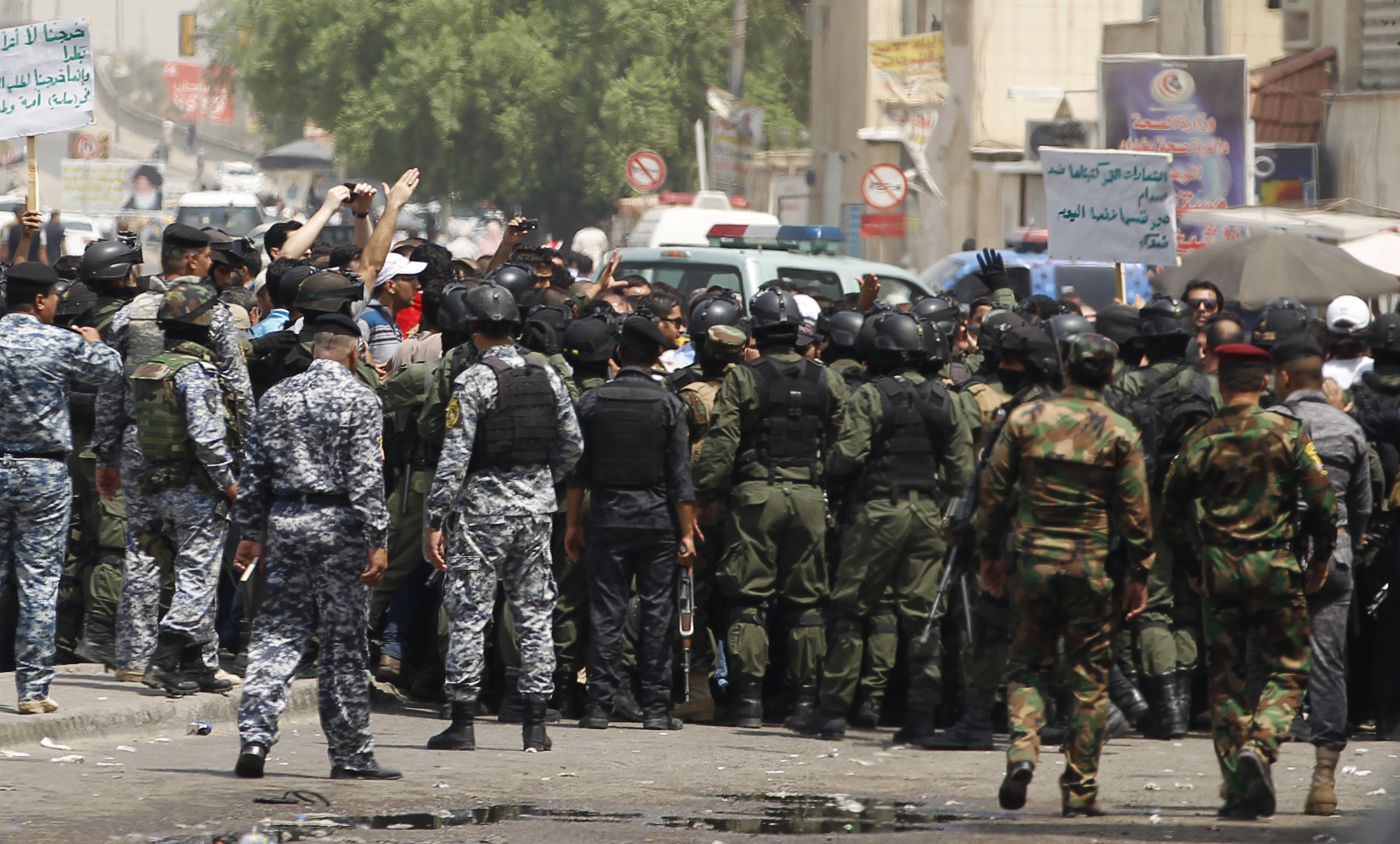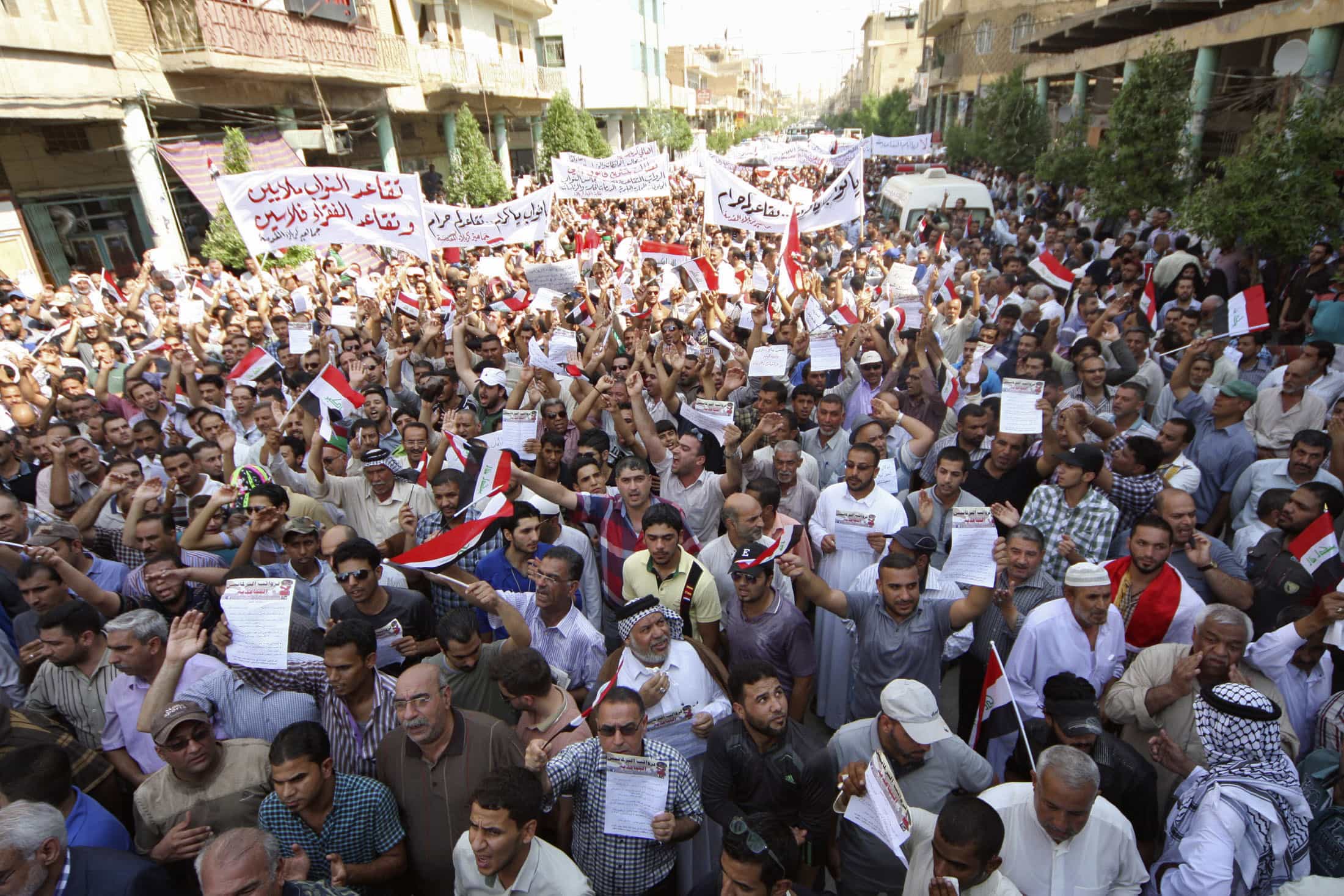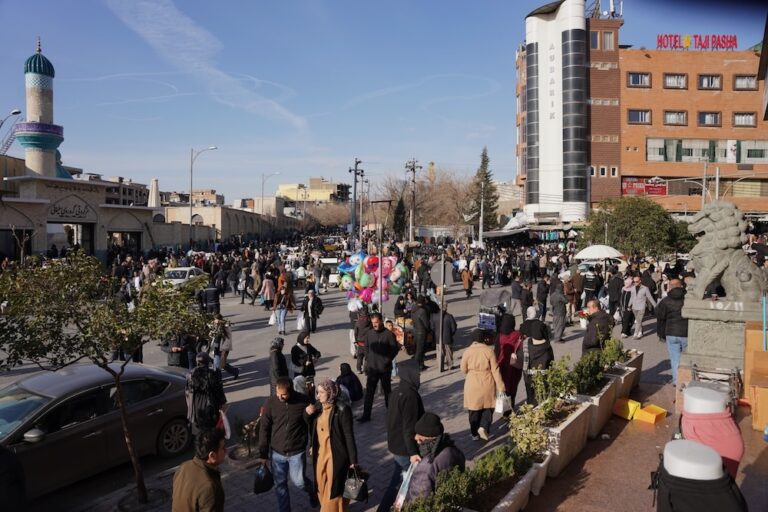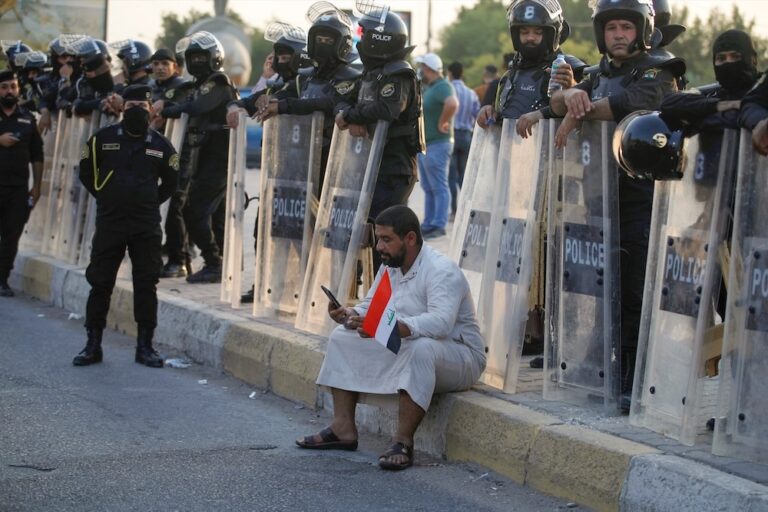In defiance of security threats, thousands of Iraqis have gathered in the streets to protest against excessive benefits and privileges enjoyed by members of parliament.
Thousands of Iraqis in Baghdad and several cities in southern Iraq took to the streets on 31 August 2013 to protest against the excessive pension payments enjoyed by parliamentarians, despite strict security measures taken by the authorities to stifle dissent, and despite being denied a government permit for the demonstration.
In the city of Nasiriyah, southeast of Baghdad, Iraqi forces used water cannons to disperse the crowds, while in other cities riot police armed with batons and tear gas beat and arrested protesters. According to the Arabic Network for Human Rights Information, at least 10 protesters were injured.
As noted by Human Rights Watch, protest organizers in the capital city Baghdad had abided by the Interior Ministry’s regulations and applied for permits to hold demonstrations – although such regulations breach safeguards contained in Iraq’s constitution.
On 22 August, a day after they were submitted, protesters’ requests were denied without explanation. A few days later, in a statement published on its official website, the Interior Ministry cited “consideration of the risks of terrorism by al-Qaeda and Ba’athists” as a reason to delay the protests.
The risk of terrorism in such circumstances isn’t a farfetched possibility in Iraq. The country has seen a significant rise in the level of violence this year with more than 600 people killed so far this month. The spike in deadly violence comes amid growing sectarian tensions, triggered in April by an army raid on a Sunni anti-government protest camp near Hawija.
Not everyone agrees that banning protests is the best way to protect citizens.
“The authorities seem more concerned with preventing Iraqis from peacefully expressing their opinions than protecting them from the attacks that have killed and injured so many this year,” said Joe Stork, acting Middle East director at Human Rights Watch. “Security forces and officials should protect peaceful demonstrators and provide them a safe space to protest, not intimidate people into silence.”
Organisers decided to go ahead with their planned demonstrations regardless. After all, members of parliament are given an average salary of $10,000 per month and a budget of $20,000 a month for security, rent and stationary. They then enjoy a pension of 80 per cent of their full salary for the rest of their lives. In 2013, it was reported that over 300 MPs earned around $72,000 a year in a country where the average wage was $6,000 in 2012.
Determined not to allow protesters in Baghdad to congregate in large numbers on 31 August, security forces closed off several main roads and bridges to stop protesters from reaching designated gathering places. Several journalists were briefly detained, and others had their equipment taken away. Agence France-Presse (AFP) photographer Sabah Arar was among those assaulted and arrested by security forces. He was released shortly after.
Public outcry against the pension plans has been so loud that many politicians spoke out in support of protesters’ demands for reform. Some political parties have even said that their MPs will no longer accept the pensions.
Activists have welcomed these promises warily, saying they will protest again in September if action isn’t taken.

Members of the Iraqi security forces prevent protesters from passing through a cordoned road which leads to Al-Tahrir Square during the demonstration in BaghdadREUTERS/Thaier al-Sudani



